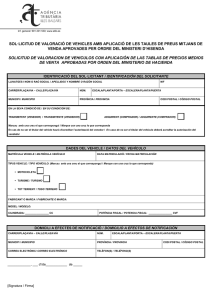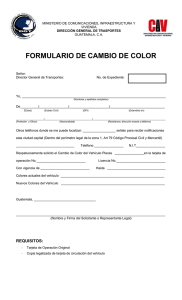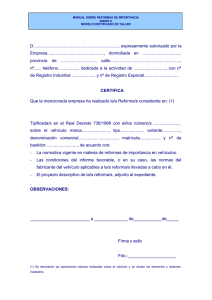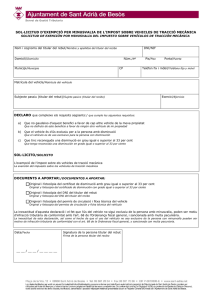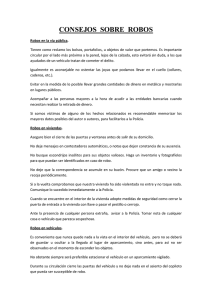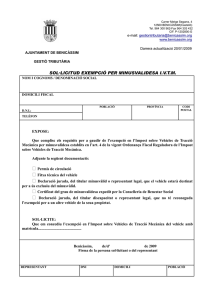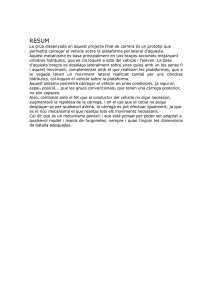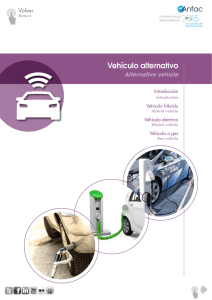Entering and Exiting Vehicles
Anuncio
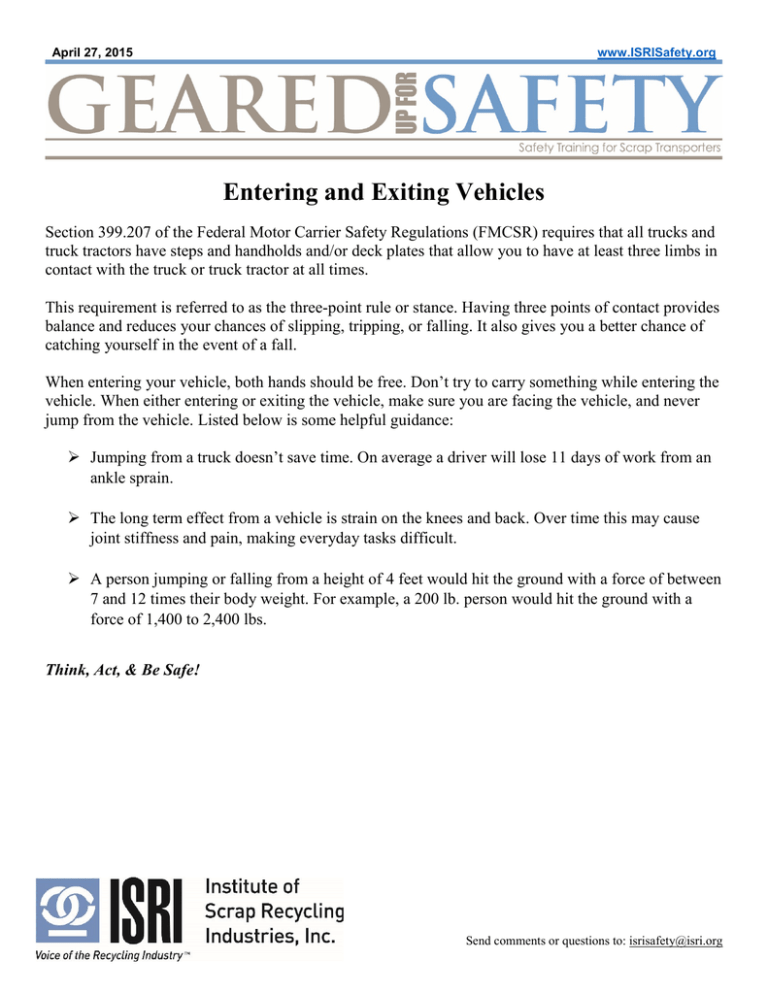
April 27, 2015 www.ISRISafety.org Entering and Exiting Vehicles Section 399.207 of the Federal Motor Carrier Safety Regulations (FMCSR) requires that all trucks and truck tractors have steps and handholds and/or deck plates that allow you to have at least three limbs in contact with the truck or truck tractor at all times. This requirement is referred to as the three-point rule or stance. Having three points of contact provides balance and reduces your chances of slipping, tripping, or falling. It also gives you a better chance of catching yourself in the event of a fall. When entering your vehicle, both hands should be free. Don’t try to carry something while entering the vehicle. When either entering or exiting the vehicle, make sure you are facing the vehicle, and never jump from the vehicle. Listed below is some helpful guidance: Jumping from a truck doesn’t save time. On average a driver will lose 11 days of work from an ankle sprain. The long term effect from a vehicle is strain on the knees and back. Over time this may cause joint stiffness and pain, making everyday tasks difficult. A person jumping or falling from a height of 4 feet would hit the ground with a force of between 7 and 12 times their body weight. For example, a 200 lb. person would hit the ground with a force of 1,400 to 2,400 lbs. Think, Act, & Be Safe! Send comments or questions to: isrisafety@isri.org 27 de abril de 2015 www.ISRISafety.org Entrada y salida de vehículos La Sección 399.207 del Reglamento Federal de Seguridad del Transporte Automotor (Federal Motor Carrier Safety Regulations, FMCSR) requiere que todos los camiones y vehículos tractores tengan escalones y asideros y/o pequeñas plataformas que le permitan tener un mínimo de tres miembros en contacto con el camión o vehículo tractor en todo momento. Este requisito se conoce por el nombre de regla o postura de los tres puntos. Tener tres puntos de contacto proporciona equilibrio y reduce las posibilidades de resbalones, tropezones o caídas. También le da más posibilidades de sostenerse en caso de caída. Al entrar al vehículo, ambas manos deben estar libres. No intente cargar algo al entrar en el vehículo. Al entrar o salir del vehículo, asegúrese de que usted esté de cara al vehículo, y nunca salte del vehículo. A continuación se presentan algunas pautas útiles: Saltar de un camión no ahorra tiempo. En promedio, un conductor perderá 11 días de trabajo debido a un esguince de tobillo. El efecto a largo plazo de saltar de un vehículo es tensión en las rodillas y la espalda. Con el tiempo esto puede causar rigidez y dolor en las articulaciones, lo que hace difíciles las tareas cotidianas. Una persona que saltara o cayera desde una altura de 4 pies impactaría contra el suelo con una fuerza de entre 7 y 12 veces su peso corporal. Por ejemplo, una persona con un peso de 200 libras golpearía el suelo con una fuerza de 1,400 a 2,400 libras. ¡Piense, actúe y manténgase seguro! Envíe sus comentarios o preguntas a: isrisafety@isri.org Training Session Sign-In Sheet Topic Instructor Location Date
